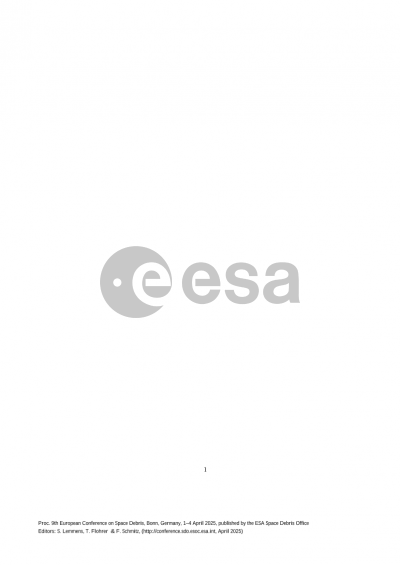Document details

Abstract
According to the EU’s definition STM (Space Traffic Management) encompasses the means and the rules to access, conduct activities in, and return from outer space safely, sustainably, and securely. A key component to enable the aforementioned means is a constant provision of relevant data to support the formation of an always up-to-date awareness of the current and future situation in space. Typically, the data provision process itself relies on several data sources and support systems. Data sources are in particular sensors supplying data from SST (Space Surveillance and Tracking) operations. Furthermore, there are also non-sensor data sources, for instance agencies providing data e.g. on upcoming launches and on-orbit maneuvers. Support systems are all data processing elements of the system plus the interconnection network between the system’s elements.
To achieve the goal of STM -- safeguarding of space operations -- STM with SST as its fundamental system component has to be resistant to internal and external interferences. During this paper a generic digital twin will be introduced which enables the modeling and assessment of above SST systems. Moreover, first results from the corresponding research projects MASSATS (Modeling & Assessment of Space Surveillance And Tracking Systems) will be presented.
Preview


